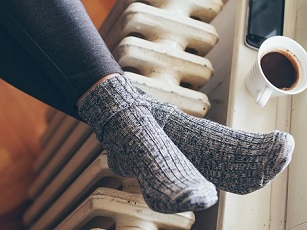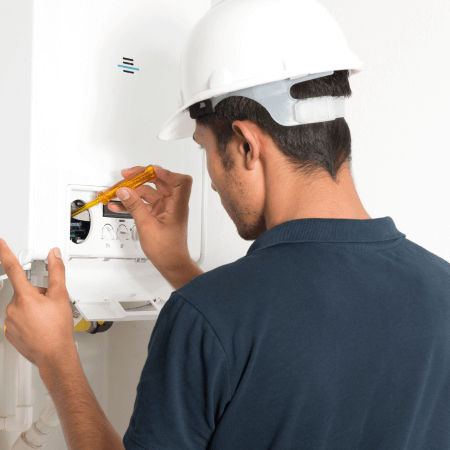Has the Covid-19 pandemic left you stuck partway through a project? Or perhaps you’re living with several outstanding repair jobs. With strict social distancing measures in place to curb its initial spread, one side effect of the current crisis has been the cancellation or delay of home improvement and maintenance projects.
It’s natural to feel frustrated if you’d been looking forward to enjoying a new kitchen, bathroom or heating system, for example. At the same time, you could have lingering safety concerns around letting tradespeople into your home as lockdown restrictions are gradually eased.
Thankfully there are steps everyone can take to minimise the risks involved and move forward. Read up on the latest official guidance below, including tips on how to prepare and what to ask of any tradespeople entering your home.
What’s the latest guidance regarding working in people’s homes?
Essential work in the home has been permitted throughout the UK lockdown, providing a tradesperson is well and safety measures such as social distancing and regular handwashing are observed. Lockdown easing in mid-May, however, encouraged people to ‘stay alert’, rather than strictly stay home. Updated guidance allows regular scheduled jobs to resume, as long as similar safety measures are in place.
Firstly, a tradesperson cannot carry out work if they have symptoms of the virus. As a homeowner, you must also cancel any plans if you begin to feel unwell – unless the work is essential, and the tradesperson is aware and comfortable with the risks.
The same advice applies if someone in your household is shielding. Essential work includes emergency plumbing and repair issues that put your safety at risk if left ignored.
If work is to go ahead, social distancing must still be strictly observed. This requires a two-metre distance to be kept between both parties where possible, both indoors and outdoors. Frequent and thorough handwashing and surface cleaning is also advised.
Where two metres isn’t possible, stick to the government’s ‘1 metre plus risk mitigation’ advice. Risk mitigating actions include wearing a face covering, increasing hygiene measures and limiting activity time in cramped conditions. You can find disposable masks and other protective items in our PPE (personal protective equipment) range.
But what other steps can both sides take to complete work in your home while minimising risk?
How to limit the risks of hiring a tradesperson
The best way to limit the risk of catching or spreading the virus remains to limit contact with other people. If you’re unsure about work going ahead, can you postpone it? Alternatively, there may be some services that you can ask a tradesperson to carry out over the phone or virtually – such as site consultations, gathering quotes and taking signatures.
Remember, however, that allowing a tradesperson into your home is acceptable if you feel comfortable and take necessary precautions. As well as the general rules outlined in the section above, that could include:
- Disinfecting high-contact surfaces, such as door handles and light switches
- Providing ventilation where possible by opening windows and doors
- Avoiding common physical contact such as shaking hands
- Making plans for everyone in your household to work or live in another room or elsewhere while the work is carried out
- If you do have symptoms or someone in your household is vulnerable but the work is essential, you should let your tradesperson know in advance so they can prepare appropriately.
What to expect from your chosen professional
Limiting the risks of spreading the virus while hiring a tradesperson is a two-way street. There are certain steps you can expect to see your chosen individual or firm take both in advance of and during their visit.
Your tradesperson should get in touch on the day to notify you of their arrival, confirm that everyone is free from symptoms and reassure you that distancing and hygiene measures will be followed. Upon arrival, look out for:
- Use of PPE such as masks and gloves
- Regular handwashing or use of hand sanitiser, both on arrival and throughout
- Taking breaks outdoors if appropriate
- Arranging methods of safe waste disposal if necessary
- Ultimately your tradesperson remains responsible for health and safety when working in your home.
If you’re not happy that they’re doing everything they should be, you can ask them to adapt accordingly, come back another time after making improvements, or cancel the work.
Clear and effective communication will help you manage any situation that does arise. You may find that agreements and contracts are more flexible in the current circumstances if you do need to cancel.
You can read more details about what to expect from professionals in the government’s guidance on working safely in other people’s homes.
Stay safe with City Plumbing PPE
Staying informed is a good way to get on with life while staying as safe as possible in the current circumstances. As well as reviewing the details discussed above, make sure to look out for any new updates to official guidance.
In the meantime, you can make sure your household is equipped and protected with our PPE range. Find disposable and respirator masks, face visors, hand sanitiser, wipes and more – all available for collection or UK delivery.
Other articles

The Radiator BTU Calculator
21 Mar 2022 ・ 4 mins

What is a boiling water tap?
22 Mar 2022 ・ 4 mins

Five points to keep in mind
21 Mar 2022 ・ 6 mins



